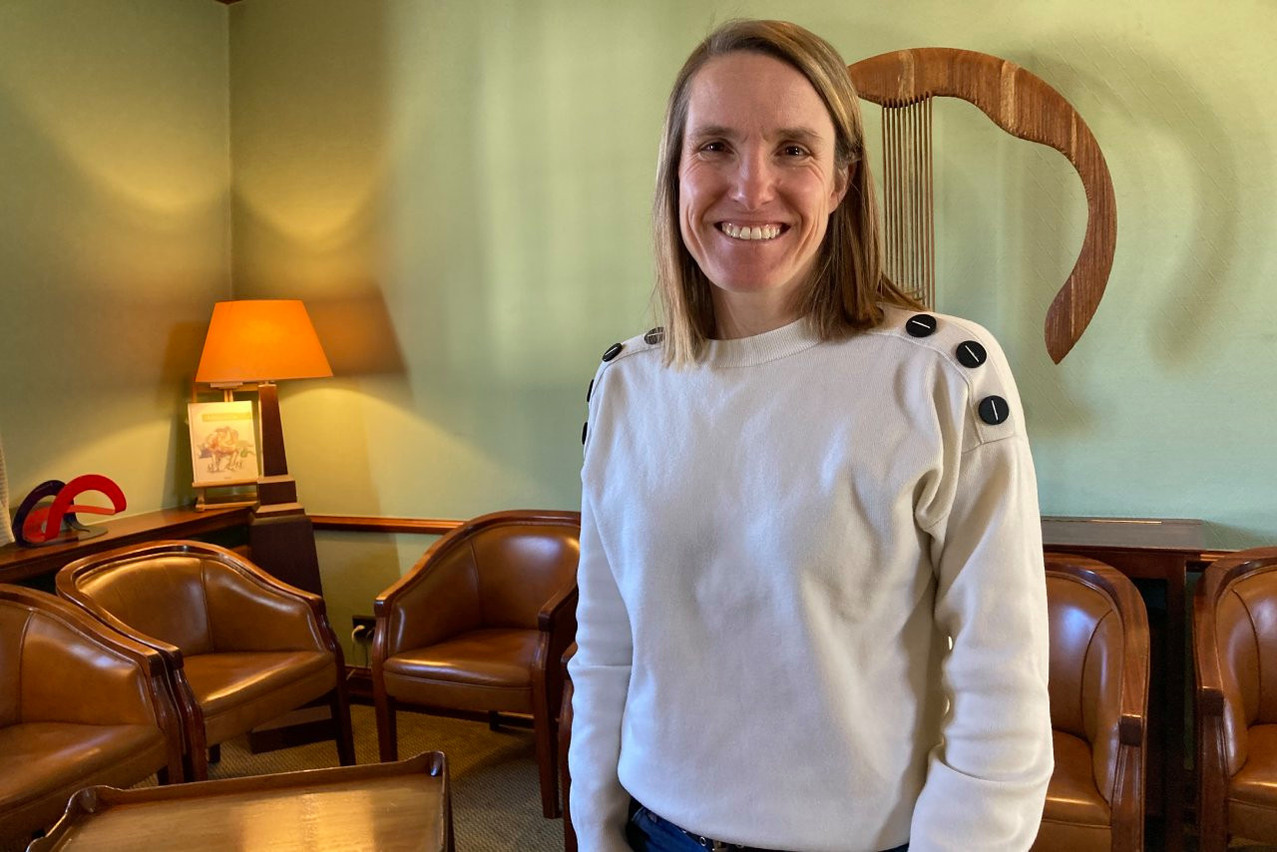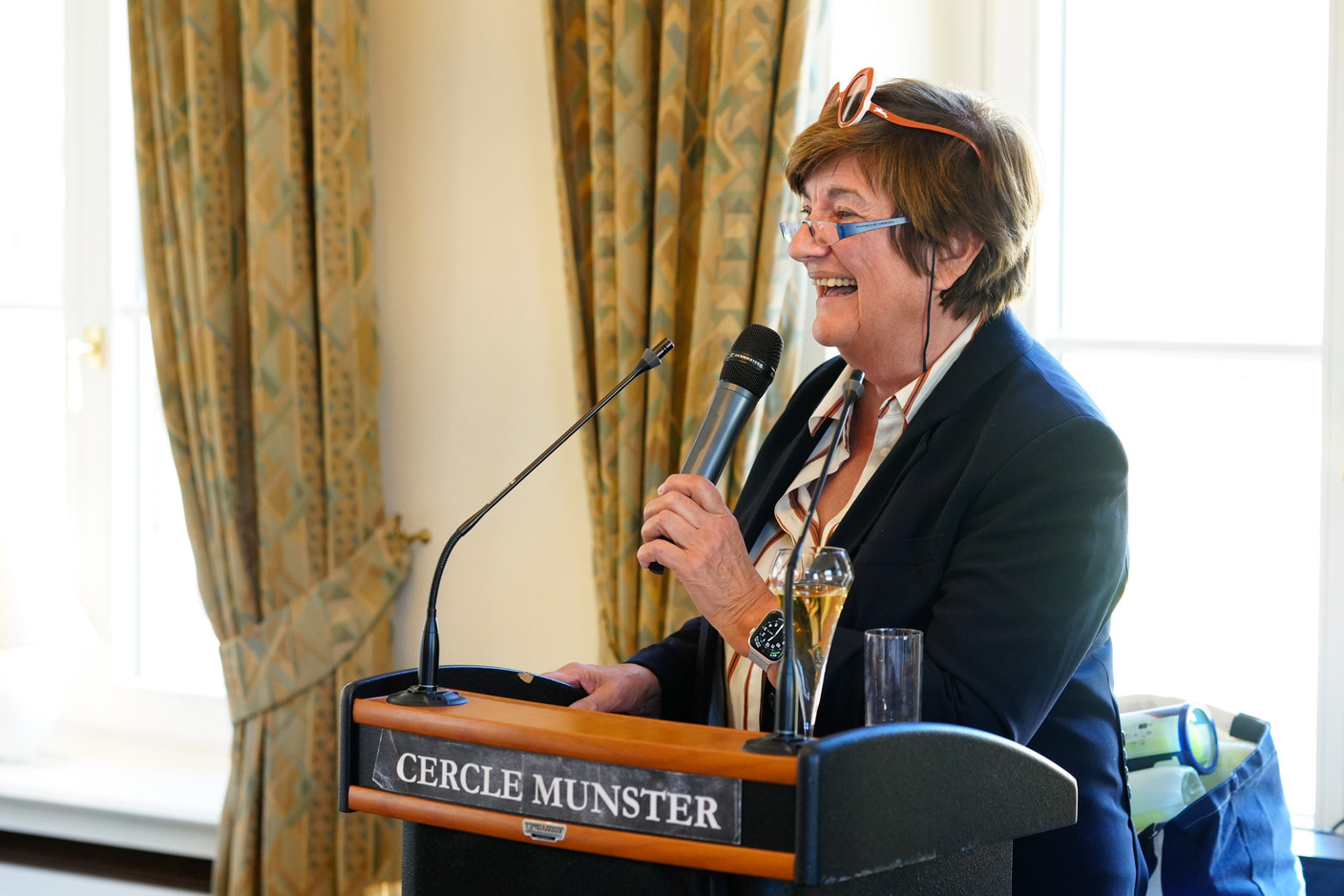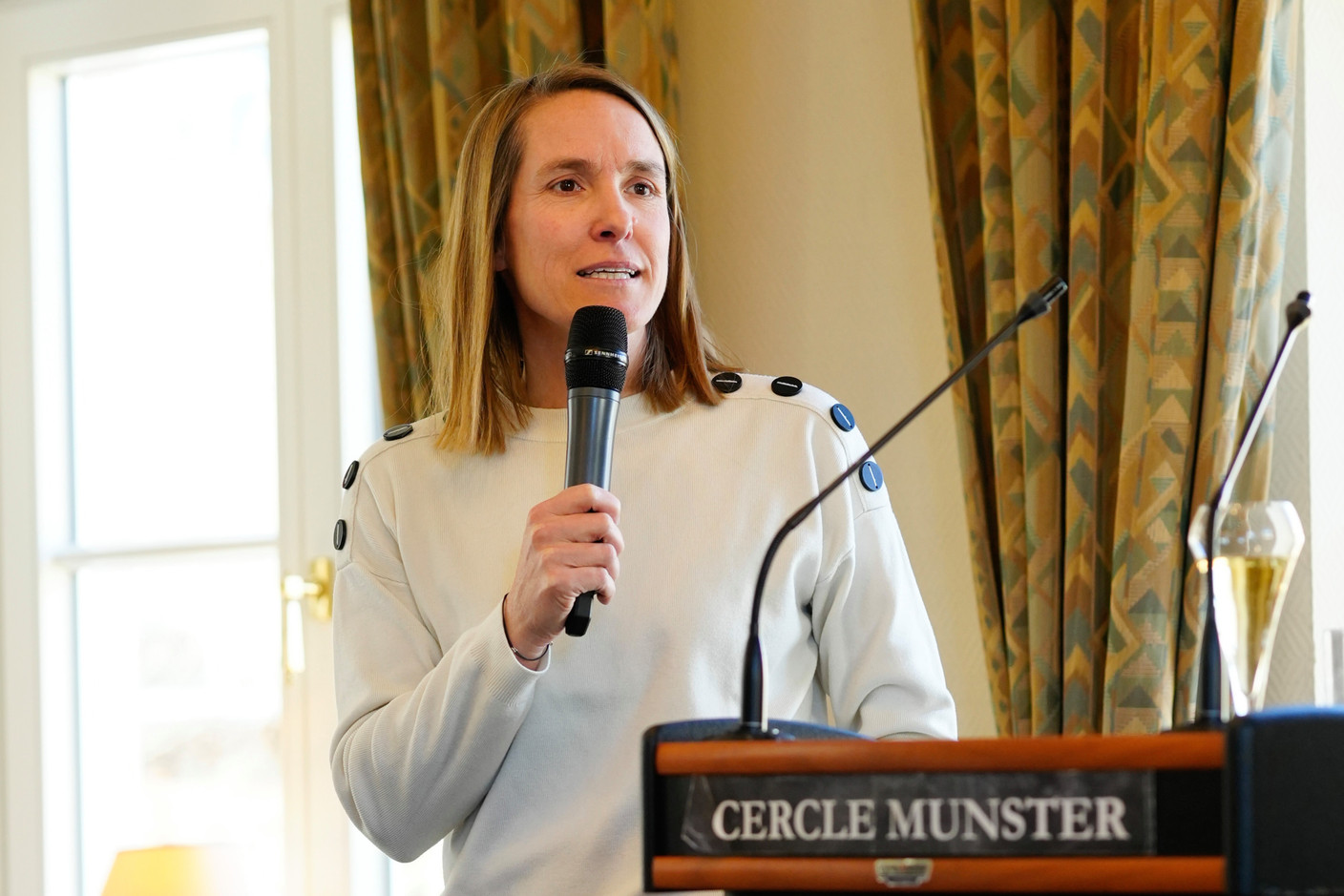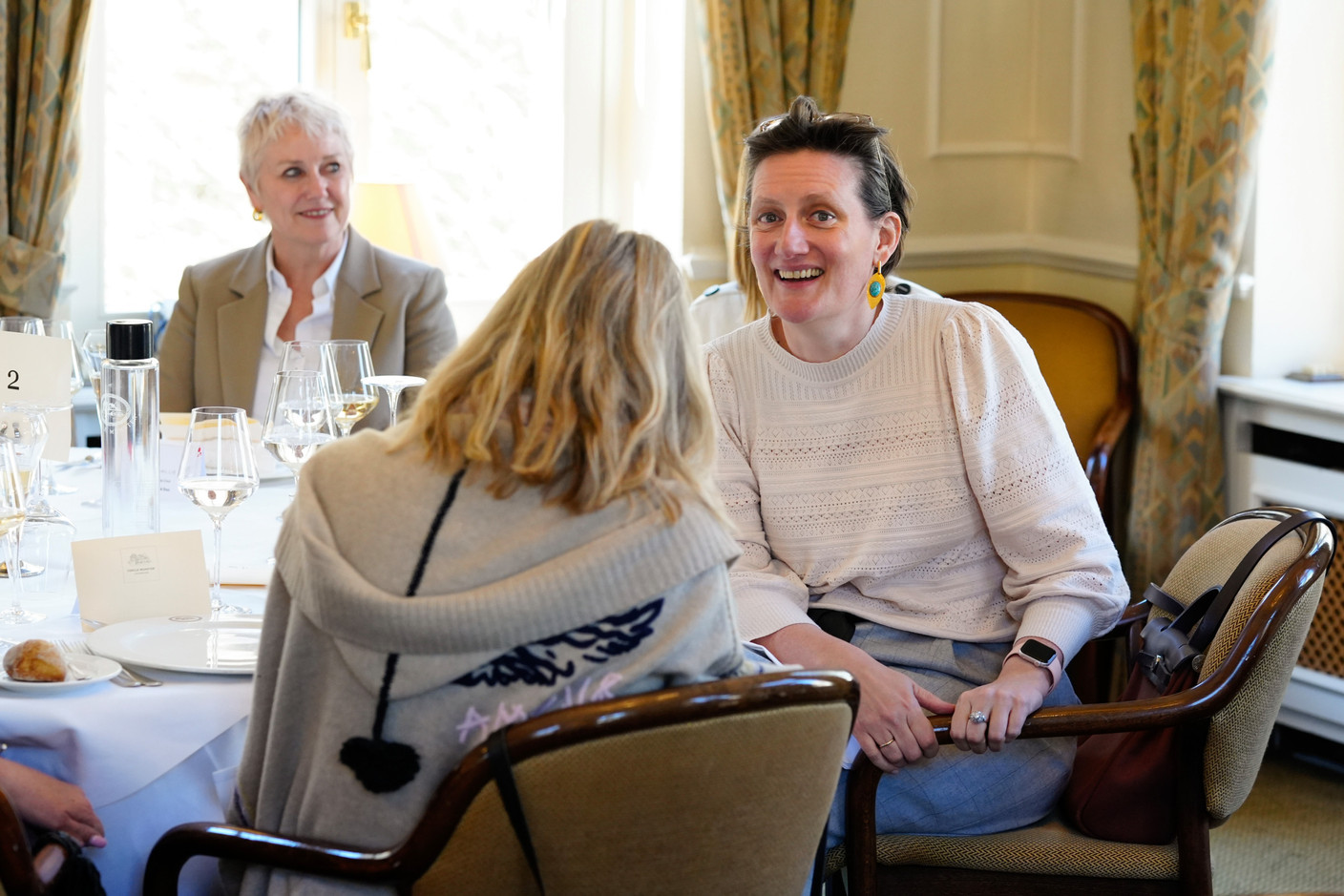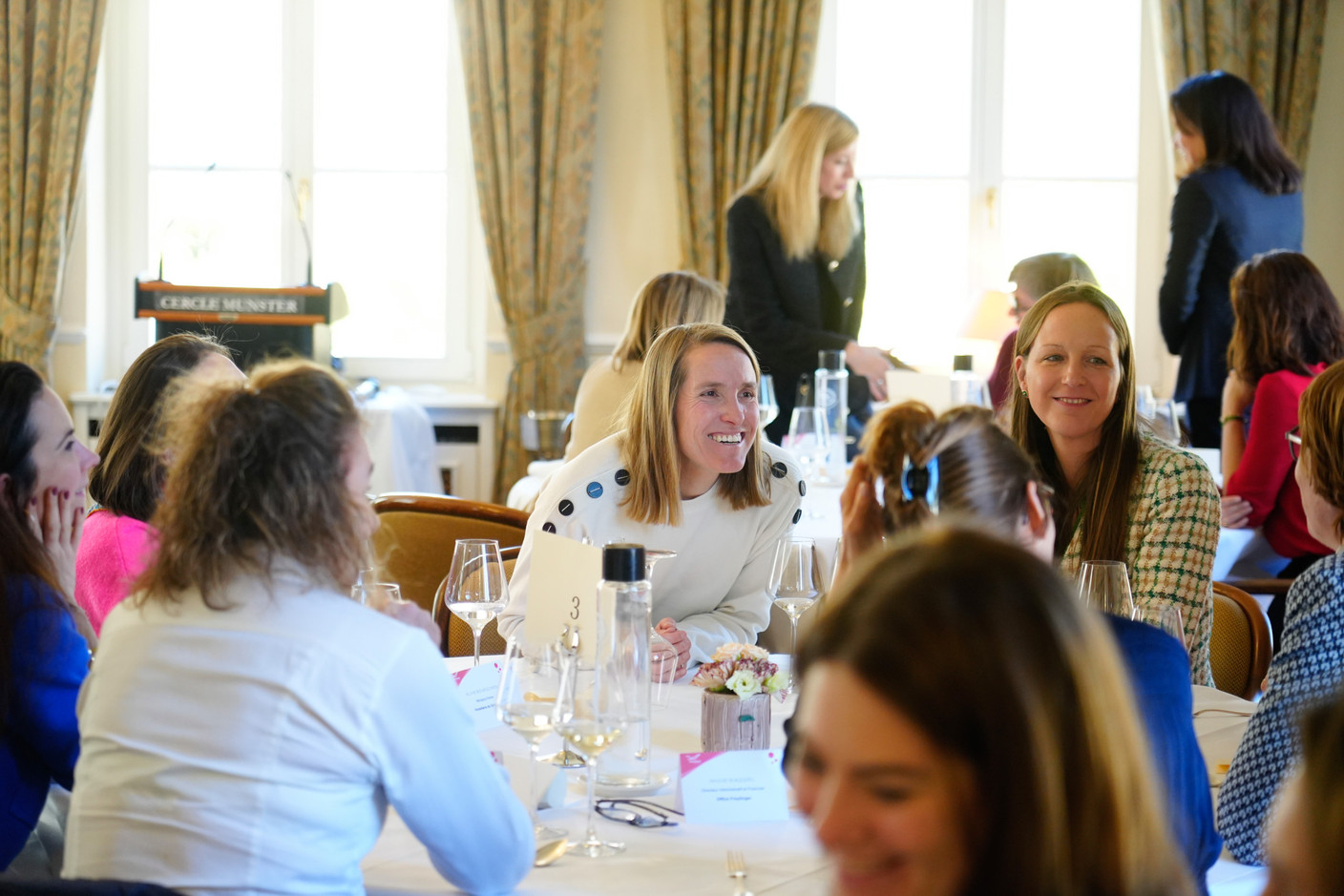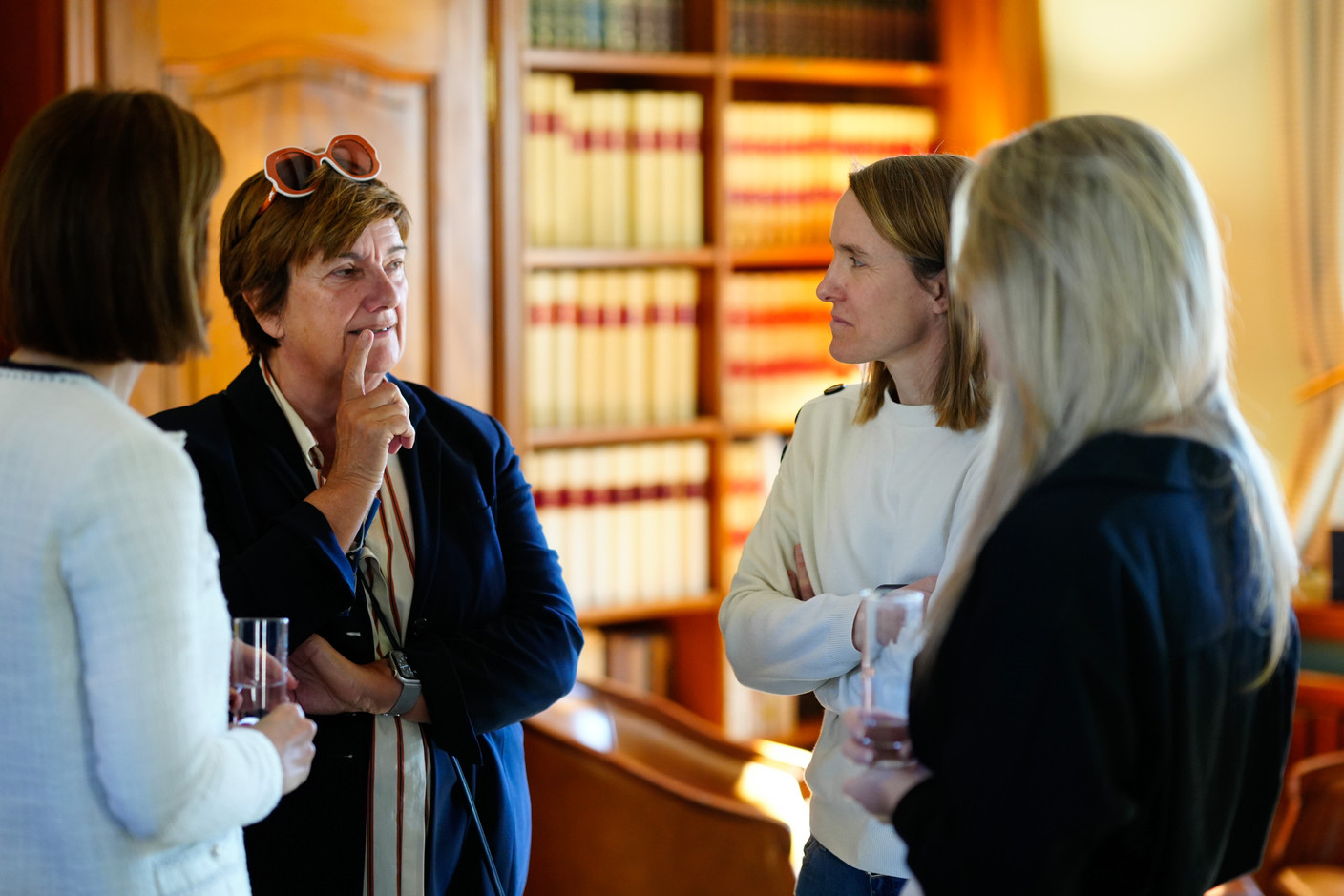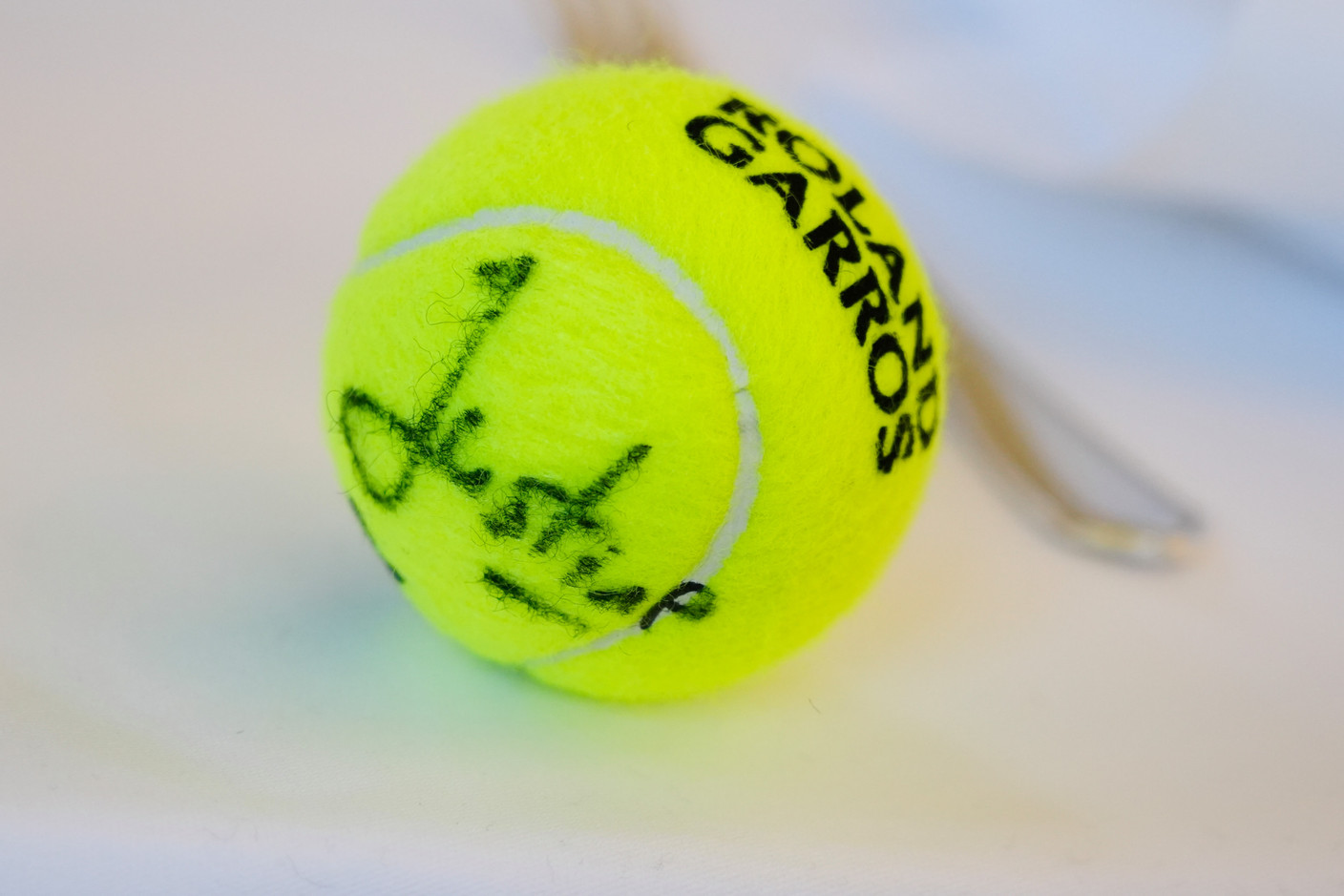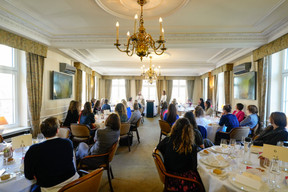Jeans, trainers, comfortable jumper. It was almost incognito that former Belgian tennis player Justine Henin, a guest at the "Rencontres au Cercle Munster", joined the lunch sponsored by management consultancy Resultance, which on Tuesday 18 March brought together some forty female CEOs and managers - including , or , sponsor of the event.
The former world number one of the 2000s, winner of seven Grand Slam titles (including four French Opens), spent an hour sharing her past around three themes common to sport and business: decision-making under pressure, resilience and excellence in execution.
After the espresso at the end of the meal and the applause, each participant left with a ball signed by the champion, now 42, who, before leaving the Grund, sat down on the library side for a short 15-minute interview. Simple and to the point. Distilling her advice in the same way that she once distilled her one-handed backhand wonders from the back of the court.
During your career, you've often had to make crucial split-second decisions. What principles do you apply to make the right choice under pressure?
Justine Henin: When the ball arrives and you have to choose or dare the long backhand, it's the work done beforehand that allows you to master as many shots as possible in as many situations as possible, under stress. There's also an element of instinct at those moments when, very quickly, you have to make a decision. I started working with my coach (Argentinian Carlos Rodriguez, editor's note) at a very young age, it's been a long road together, and this whole element of autonomy and taking responsibility has been an important part of my learning and development to get to the point where I can say to myself: 'OK, I'm ready, I can rely on myself.'
What parallels do you draw with the business world?
Although the contexts are very different, the realities are very similar. How do you get out of your comfort zone to explore, to try, to take a risk...
It's in my character not to give up much.
Is there a situation where a tough decision changed the course of a match or your career? How did you handle it?
There were many, many decisions to be made, some of them quite tough. I left home at the age of 17 and decided to study at a distance, to make my own way. It was already a strong choice at the time. At the age of 14, we also decided to change my forehand grip, when it might have been more comfortable to continue playing tournaments, and perhaps winning, as I had been doing up until then. But, no, we made the choice to stop for a while, to get away from the short term, and to work for the future. How do you set a course? How do you get off the beaten track a bit and make changes at times when others might not have dared? I've been very lucky with my coach.
You've had injuries, defeats and even early retirement. What has enabled you to bounce back each time?
There's been work, but I also think it's in my character not to give up much. It's been shaped by my life, my family background, the trials of life, all the things that come your way. I've had to pick myself up from extremely difficult times. The death of my mum when I was very young (in 1995, when Justine Henin was 13, editor's note) was a time when things got rocky and I had to hang on. In my life, I've always tried to find opportunities to bounce back from the hardest moments.
Just how do you turn a failure into a lever for progress, whether in sport or business?
Failure is normal. You have to accept it and admit that you can't always be at the top of your game. As Federer said: 'I've won more than 80% of the matches I've played in my career, but I've won an average of 54% of the points. You have to make do with the resources you have at a given moment, in a given situation. There are so many parameters... You don't get up every day with the same energy before going to work. But what will you be able to give at that moment? That's a whole learning curve. We're all human, we all have the right to be a little less well at times, the most important thing is to know how to deal with that.
Even for the greatest champions, a career is not a smooth ride.
What habits and routines do you recommend to cultivate this resilience?
Debriefing and analysis after a deadline is important. It doesn't matter whether it was positive or not. After a tennis match, you need to understand what enabled you to go all the way or, on the contrary, what you weren't able to put in place to win. This has to be done with distance and coolness, once all the emotions have subsided. That's something I've been able to build on. Making realistic, factual analyses, connecting with what you've felt and coming to terms with things that aren't always easy, but which can really change things for the future. There's a notion of honesty to be had in this process.
How to maintain an optimum level of performance over time, despite the pressure and fatigue?
When you're 'in it', it's not always easy to take a step back. In such cases, the people or team around us are of vital importance. You can talk, and that helps enormously. It's also a question of being able to refocus, to put yourself in your own bubble, to try and get the necessary distance, and I'll come back to that. Even for the greatest champions, a career is not a smooth ride. There are ups and downs. That's perfectly normal.
But how do you surround yourself with the right people? As we all know, stars are coveted...
I closed the doors around me quite a lot, that was my way of dealing with it all. I didn't know how to manage everything, and a lot of people tried to gravitate towards me. I clearly protected myself, even if it meant projecting a slightly cold image. When I was a player, I tried to perform as well as possible, but also to be authentic in my approach. I kept myself away from people's expectations and what they could say about me on the outside. That too was a learning process, a journey. I was really helped by Carlos, who helped me to channel all that. We stayed open, alert, but we had a direction.
Today, you support athletes and entrepreneurs through your activities. What's the main message you want to pass on to them?
'Life is a daring adventure or it's nothing.' This quotation from Helen Keller has stayed with me a lot. When I address an audience, I don't come with ready-made messages but with the idea of sharing my experience. That of a little girl who proclaimed that she wanted to become number one in the world and who everyone looked down on, saying: 'Well, it's all very well to dream, but...' I'd say that you shouldn't stop dreaming and daring. If I had stopped at what other people thought of me at the time, I would have quickly thrown in the towel.
This article was originally published in .
